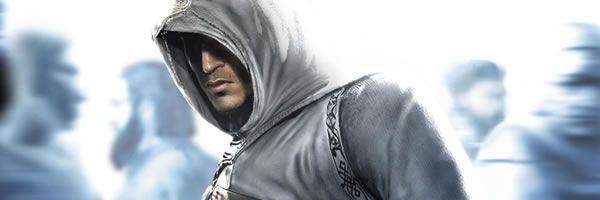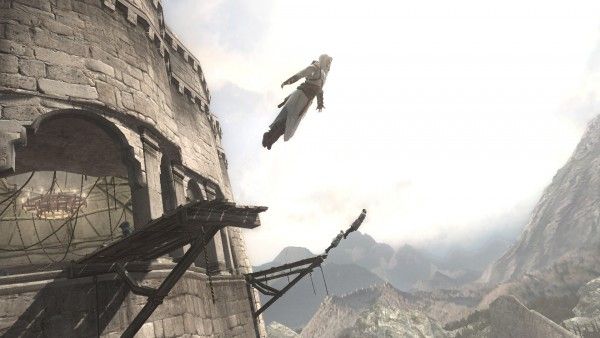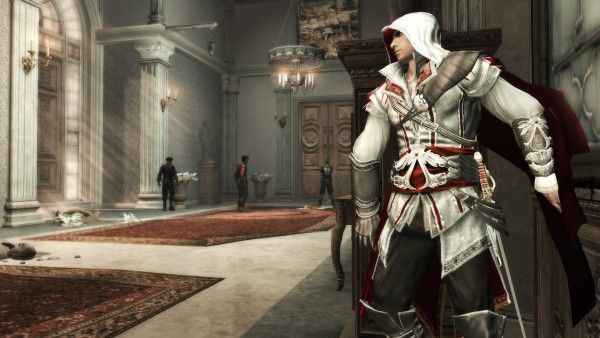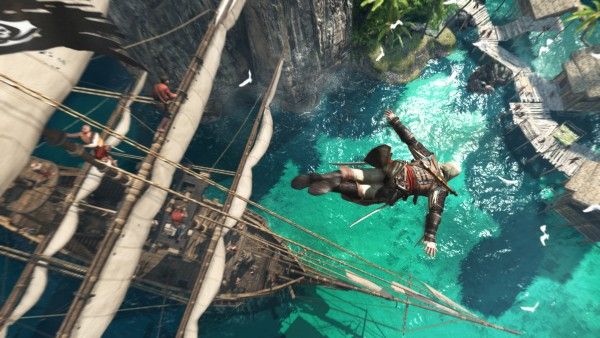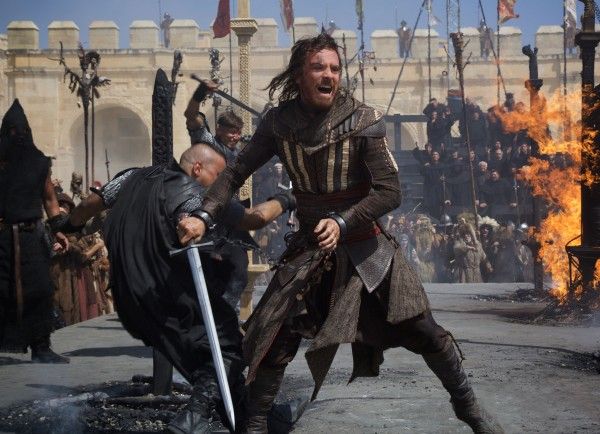If you hadn't already heard the news, Ubisoft recently confirmed they will not be releasing a new Assassin's Creed game in 2016, which marks the first year without a new major title since 2009. Instead, the company will be "stepping back and re-examining" the franchise for the time being. Ubisoft CEO Yves Guillemot added that they may not continue their annual release cycle once the series returns. This of course would be unprecedented for Ubisoft, but it could also mean the dawn of a new era for Assassin's Creed, which, frankly, has been in a rut for the last several years. Don't believe me? Let's start at the beginning, with the original Assassin's Creed for Xbox 360 and Playstation 3.
First, let me say that Assassin's Creed is one of my all-time favorite video game series. I love the idea of exploring different time periods through the lens of a secret conflict between Assassins and Templars. I still remember watching online footage of the first game and being awestruck by the pairing of 12th-century period elements and free-running gameplay. And once I actually sat down and played the game in 2007, I was hooked. The exploration, the setting, the religious themes -- they were all fantastic. But the game's masterstroke -- and the main reason I kept coming back -- was the modern-day frame story.
Rather than just dropping the player into the middle of a random time period, the game featured a contemporary main character named Desmond Miles (for all intents and purposes, you), who was able to explore the genetic memories of his ancestors using a machine called the Animus. This, in effect, gave the series a sense of continuity, as Desmond lived the lives of different Assassins across the globe. Granted, the first Assassin's Creed wasn't perfect. The Crusade-era campaign was relatively short (DLC-length by today's standards), and the story of Desmond's forebear Altaïr left something to be desired. The gameplay was also rough around the edges, in spite of its novelty. It wasn't until 2009, when a Renaissance-set sequel hit stores that the series began to take shape.
In addition to introducing a new mission structure and monetary system, Assassin's Creed II gave players a more likable protagonist, Ezio Auditore de Firenze, while also expanding on Desmond's story in new and exciting ways. It also had a phenomenal soundtrack composed by Jesper Kyd. Basically, if Assassin's Creed was a block of marble, then Assassin's Creed II was Michelangelo’s David. In my opinion, ACII is the best game in the series, not just because it's fun to play, but also because it realized Creed's full potential. It improved upon the first game in every single way, including and especially the world-building. It's no surprise that ACII inspired two direct sequels, Assassin's Creed: Brotherhood (2010) and Assassin's Creed: Revelations (2011), both of which featured Ezio, and kicked off Ubisoft's annual release model.
Luckily, Brotherhood and Revelations were very solid games. Both titles continued to flesh out the main characters' storylines, and the games' recreations of Rome and Constantinople were impressive to say the least. This is also when Assassin's Creed added online multiplayer, which was a nice touch. Alas, the gameplay hadn't changed much. While the free-running mechanic was as strong as ever, the much-disdained eavesdropping and tailing missions remained intact, and the stealth and combat modes were still clunky. After Revelations, the series was starting to show its age, and it likely had to do with Ubisoft cranking out one game a year. Between writing new stories and adding different skins to the main engine, there was precious little time for the series to grow in any significant way. "Creed Fatigue" was in full effect by the time Ubisoft announced Assassin's Creed III (2012), but this new game had the advantage of taking place in a completely new setting -- the American Revolution -- while also introducing naval combat and bringing Desmond's storyline to a close. That last part had me particularly excited, since I was eager to find out what the developers had in store for the modern-day timeline. And despite ACIII's overall sameness, I was satisfied with the end of Desmond's character arc and felt like I had experienced a complete beginning, middle and end.
The problem is, Ubisoft kept going. In 2013, they released Assassin's Creed: Black Flag, a pirate-themed adventure with only loose ties to the previous games. The only reason I even picked it up was because I heard the story included Desmond in some way, but given how things played out in Assassin's Creed III, I wasn't expecting much. Sure enough, the modern-day subplot was just as underwhelming as I expected. Instead of controlling Desmond, the player assumed the role of an unnamed character who explored Desmond's lineage by way of samples taken from his DNA, which is about as convoluted as it sounds. Meanwhile, the gameplay was fun but pretty much identical to ACIII's, and the swashbuckling storyline lacked the same theological bent of the previous installments. Suffice to say, this was the last Assassin's Creed I spent any real time with.
In 2014, Ubisoft simultaneously pumped out Assassin's Creed Unity and Assassin's Creed Rogue, which started a backlash. Unity was notoriously buggy at launch (it was the series' first next-gen-only title), and Rogue was sent out with zero fanfare. Both games were met with mixed reviews, and Unity didn't even bother to include a modern-day frame story. At that point, the series had become a shell of its former self. The newest game in the series, Assassin's Creed Syndicate (which, surprise, came out in 2015), received better reviews than Unity, but the last game's technical issues left fans skeptical, and sales suffered.
Which brings us to 2016, a year when Creed Fatigue is at an all-time high. Honestly, I'm a little surprised Ubisoft decided to put their most lucrative series on hold, but I applaud their effort to actually make the series better rather than just churn out another mod of Unity. In the meantime, 20th Century Fox has their Assassin's Creed movie coming out later this year, which could help reinvigorate the franchise and give that project room to breath between games. Then there's Scholastic's young adult book series, Last Descendants, which will hopefully drum up even more exposure in 2016. Like I said, Assassin's Creed is one of my favorite game series, and I would love to be drawn back into that universe, but the games are going to need a serious overhaul to do that: new engine, new combat system, new story, new characters, everything. I'm talking the difference between Assassin's Creed and Assassin's Creed II -- from marble to statue. (In case you forgot, those were the only two games with more than a year between them.) And I have complete faith that Ubisoft is up to the task; they just need to follow their own Creed: "Nothing is true. Everything is permitted." Like any good Assassin, start from the ground up.

